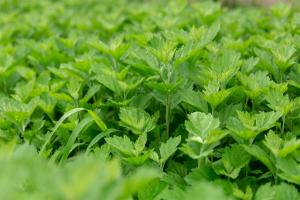Can You Give Plants Tap Water?
Water is a necessity for plants to grow and thrive. However, not all water sources are created equal, making one of the most frequently asked questions among gardeners, "Can you give plants tap water?"
The Composition of Tap Water
Tap water is supplied to households by local municipalities and is treated to make it safe for human consumption. However, the water composition may differ depending on the source and treatment process, which can adversely affect your plants' health.
Tap water usually contains minerals, chlorine, fluoride, and other chemicals to make it safe for drinking. While these chemicals are safe for humans, they can cause damage to some plants. Chlorine, for example, can burn plant leaves and cause discoloration, while fluoride can interfere with nutrient uptake and stunt plant growth.
Are There Any Exceptions?
While tap water may not be ideal for all plants, some can tolerate it better than others. Plants that are native to the area where the tap water comes from are usually adapted to the water's mineral content and pH level. Plants that thrive in alkaline soil, such as succulents and cacti, can also tolerate tap water better since most tap water is slightly alkaline.
Houseplants that prefer to be pot-bound and require less frequent watering, such as snake plants and ZZ plants, can also tolerate tap water better. These plants are less susceptible to root rot, which is a common problem caused by overwatering and poorly drained soil.
How to Make Tap Water Safe for Plants
If you're worried about the tap water's quality and how it might affect your plants, there are several ways to make it safer for them:
Let the water sit overnight before using it to water your plants. This allows any chlorine to dissipate into the air.
Add a water conditioner or dechlorinator to remove chlorine, heavy metals, and other chemicals from the water.
Use rainwater or distilled water instead of tap water. Rainwater is usually low in minerals and pH-neutral, making it ideal for sensitive plants.
If you have a water softener, use the water that bypasses the softener. Softened water contains high levels of sodium, which is harmful to plants.
The Bottom Line
So, can you give plants tap water? The answer is yes - but with some caveats. Some plants, particularly those native to the area and those that thrive in alkaline soil, can tolerate tap water better than others.
However, if you want to ensure your plants' optimal health, it's best to take precautions and make the water safe for them. Try letting the water sit overnight or using a water conditioner to remove chemicals, or use alternative water sources like rainwater or distilled water.
By taking care of your plants' water needs, you're ensuring their growth and vitality, and you'll be rewarded with a beautiful, healthy garden.

 how many times do yo...
how many times do yo... how many planted tre...
how many planted tre... how many pine trees ...
how many pine trees ... how many pecan trees...
how many pecan trees... how many plants comp...
how many plants comp... how many plants can ...
how many plants can ... how many plants and ...
how many plants and ... how many pepper plan...
how many pepper plan...































